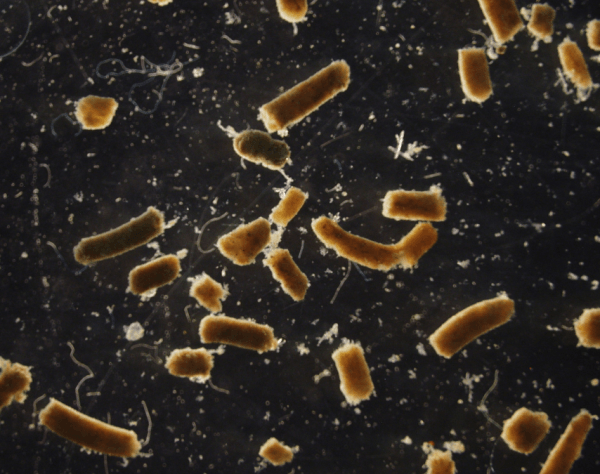Scientists have little understanding of the role fishes play in the global carbon cycle linked to climate change, but a Rutgers-led study found that carbon in feces, respiration and other excretions from fishes – roughly 1.65 billion tons annually – make up about 16 percent of the total carbon that sinks below the ocean’s upper layers.
Better data on this key part of the Earth’s biological pump will help scientists understand the impact of climate change and seafood harvesting on the role of fishes in carbon flux, according to the study – the first of its kind – in the journal Limnology and Oceanography. Carbon flux means the movement of carbon in the ocean, including from the surface to the deep sea – the focus of this study.
“Our study is the first to review the impact that fishes have on carbon flux,” said lead author Grace K. Saba, an assistant professor in the Center for Ocean Observing Leadership in the Department of Marine and Coastal Sciences in the School of Environmental and Biological Sciences at Rutgers University–New Brunswick. “Our estimate of the contribution by fish – about 16 percent – includes a large uncertainty, and scientists can improve it with future research. Forms of carbon from fish in ocean waters where sunlight penetrates – up to about 650 feet deep – include sinking fecal pellets, inorganic carbon particles (calcium carbonate minerals), dissolved organic carbon and respired carbon dioxide.”
Read more at Rutgers University
Photo: Fish fecal pellets collected from the Santa Barbara Channel off California. Photo Credit: Grace Saba


